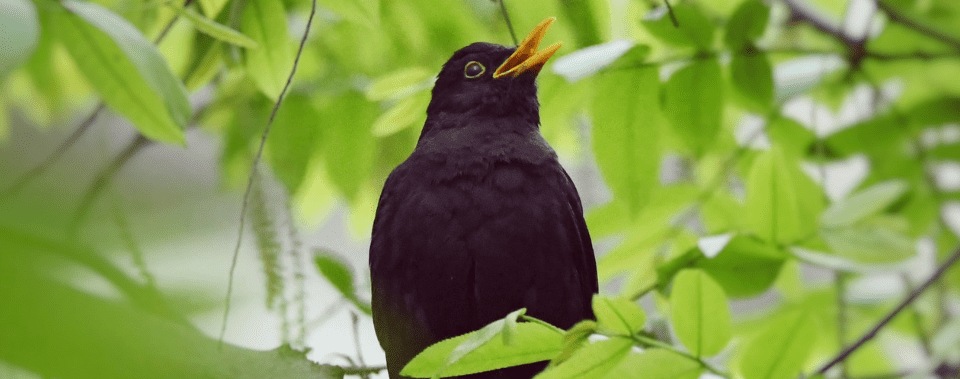JOMO - The Joy of Missing Out
The JOMO philosophy, by omitting certain things, signals a path to greater relaxation. With the Joy of Missing Out, we celebrate what truly matters to us.
Thank you, blackbird!
A thank you to the blackbird for its soothing chirping, which has positive effects on health. Its singing is appreciated for its melody and pleasant effect.
The soundbox on travels: Always a piece of home with you
How to add a touch of home to a hotel room? Relaxound fan Christof shares why he always carries one of our soundboxes while traveling and what their sounds mean to him.
Susanne's Jungle Story: The Junglebox and a little journey through time
A winning story from our Jungle Story competition: In her story, Susanne describes the great feeling of being able to travel through time in her mind with the sounds of the Junglebox
Marc's Jungle Story: The Junglebox and a feeling of freedom
Marc's Jungle Story describes the fascinating feeling of freedom when one immerses oneself completely in the exotic sounds of the Junglebox.
Stefanie's Jungle Story: The Junglebox and the Journey to Paradise
Stefanie's Jungle Story is a little journey through time. The sound of the Junglebox awakens memories of a particularly beautiful vacation.
Crickets chirping: that's why crickets chirping relaxes so well
Scientific studies prove the extremely positive effect of cricket chirps. They explain why we can relax and thus concentrate better.
Relaxound Anniversary Story 06: Our Quirkiest Design Ideas
Everyone has a few youthful indiscretions tucked away in teir closet. Here are our quirkiest Design Ideas.
Leading by Example: $3 Billion for the Environment
We celebrate World Environment Day. A opportunity for everyone to contributen to the well-being of our environment.
Hello? New York is calling!
A call from MoMA in 2015 set us jumping for joy and proved to be a huge challenge. The journey to New York was indeed a challenge.
Relaxound Anniversary Story 04: We're going to big this up now
After getting a loan, our two founders Philipp and Dennis were finally able to do something that was long overdue.
Relaxound Anniversary Story 03: About money and really important things
The Zwitscherbox almost didn't exist. Because we didn't get a loan for a long time.
Relaxound anniversary story 02: And what do we call it?
Switscherbox, Zwittzerbox, Tschittscherbox. Our name is not so simple abroad.
Relaxound Anniversary Story 01: How to build a Zwitscherbox?
What does a product look like that doesn't yet exist? This question was one of many that Philipp Störring had to ask himself.
Gifts with added value
Relaxound boxes are popular gifts, they offer pure natural relaxation and can do much more. Thanks to our commitment to 1% for the Planet, you're also giving the gift of environmental protection.


 (1).jpg)













